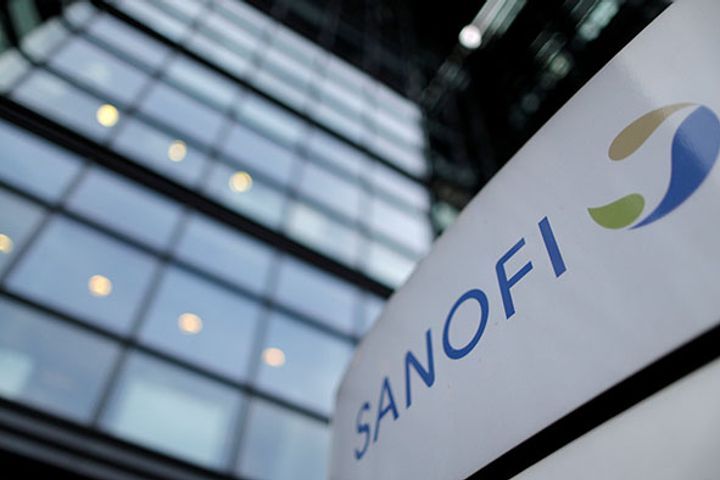 Sanofi May Maintain Double-Digit Growth in China This Year, China Head Says
Sanofi May Maintain Double-Digit Growth in China This Year, China Head Says(Yicai Global) March 27 -- Sanofi SA, among the world's largest transnational pharmaceutical manufacturers, has achieved phenomenal sales in China in recent years. The company will maintain its double-digit growth this year, predicted Jean-Christophe Pointeau, the country chair for Sanofi China.
Sanofi has maintained spectacular growth in China over the last half decade. Its Chinese sales hit CNY16 billion, up 15 percent last year, Pointeau said at a March 15 Shanghai press conference. China has great demand for drugs for diabetes, hypertension and other chronic ailments. As Sanofi's Chinese business encompasses many hospitals at county and community levels, its products will serve more people, he said.
China's medical needs are huge, Pointeau noted. the country has up to 114.4 million adult diabetics, topping the world's list, with over 270 million hypertension sufferers, per its official data. As much as CNY210.3 billion direct financial burdens caused by hypertension in 2013, which made up two-thirds of total national healthcare costs.
Sanofi is a transnational pharmaceutical enterprise and was the first to establish healthcare institutions specially oriented to county-level regions in China. It set up a grass-roots healthcare business department in 2011, to carry out professional skill and knowledge training for doctors in counties and help patients access standard treatments in their own neighborhoods. Covering almost 4,000 community health centers, Sanofi's China unit has trained 20,000 doctors and carried out screening for 60,000 hypertension patients and diabetics as of last year.
Sanofi has also teamed with Chinese e-commerce giant Alibaba Group Holding Ltd. to institute an online inquiry service for drug sources to combat counterfeiting. Patients can check the date of manufacture and other relevant drug information by scanning the QR code on packaging through Alibaba's Taobao online shopping mobile app. The company, which will cooperate with Chinese internet firms in Big Data and artificial intelligence, expects to improve doctors' diagnostic and comprehensive disease management capabilities via new technological approaches, Pointeau added.